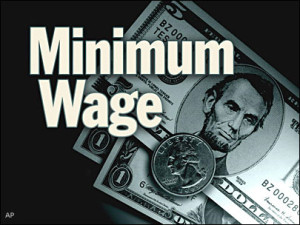Over the past two weeks, several minimum wage increases have been enacted around the country. Michigan Minimum wage will increase from $7.40 to $9.25 per hour over the next four years – an overall increase of 25%. The increase will occur in phases; beginning on...
Blog Category:
Household Payroll & Taxes
Hiring a Nanny from Craigslist & Other Online Sites
Many people are familiar with online classified ad sites, such as Craigslist. These are low cost, easy to use, and work much like posting an ad on a college bulletin board or in the local newspaper. These sites also advertise local nannies and families looking for...
Paying Your Nanny Off the Books: Not Worth the Risk
Many household employers mistakenly assume that because the employment of domestic work is within their own home, they are unlikely to get caught paying their employee illegally. Because there is a long history of household employment being paid in this way, many...
Home Office Tax Deduction for Domestic Employers
There is an option that makes it simpler for qualifying taxpayers to include a home office tax deduction. The IRS announced a simplified option that many owners of home-based businesses and some home-based workers may want to use to figure their deductions for the...
Do Nannies Need Credit History?
Credit history for nannies and other household employees is very important if they are ever planning to apply for a loan, buy a car, buy a house, or have a credit card. A nanny who accepts wages “under the table” will not have a legal employment history or credit...
Minimum Wage Increases In Several Areas
Connecticut, Minnesota, West Virginia, Delaware, Maryland, and Washington D.C. have recently increased their minimum wage requirements. All of these increases will take place gradually over a certain number of years. Household employers who pay their employees minimum...
NYC Paid Sick Leave – Notice of Employee Rights
Under the New York City paid sick leave law, in effect as of April 1, 2014, domestic employers are required to give eligible employees a Notice of Employee Rights created by the Department of Consumer Affairs. Existing employees that have been employed before April 1,...
Paid Sick Leave for NYC Domestic Workers
New York City has passed its first paid sick leave law that went into effect on April 1st 2014. The law requires domestic employers to provide employees who work more than 80 hours in a calendar year with two paid days off to care for themselves or for close family...
7 Nanny Transition Tips
Ending a job is never easy. Whether it is your decision, your employer’s, or a mutual agreement to part ways, there are many things to take into consideration during this time of transition. To help you through this challenging and unsure time, we have developed...
Sign up for our Newsletter
Household Employer Digest











 Get your free:
Get your free: